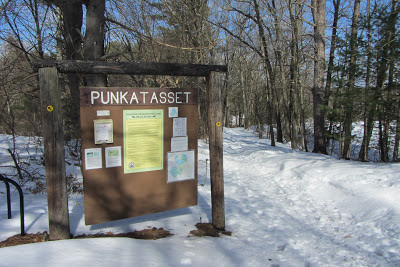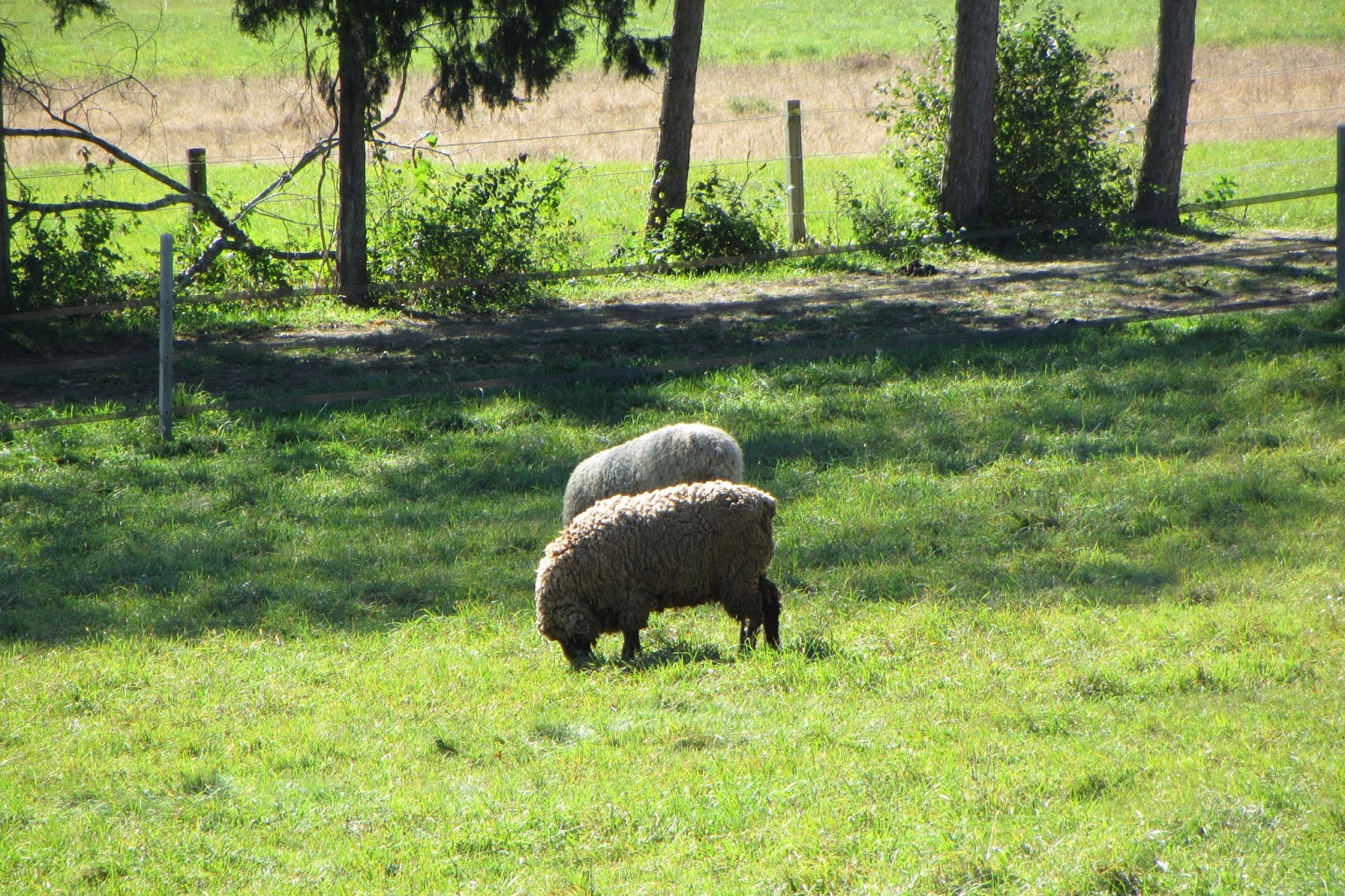Conservation Restrictions mostly protect
private land
in Massachusetts. Since nearly all of these are closed to public
access, we ask you to respect the landowners' privacy, and
not trespass upon them.
However,
cities, towns, and other land trusts often grant CRs to The Trustees of
Reservations, as an extra layer of protection for their conservation
land - and most of these
are open to the public. These
conservation areas provide beautiful vistas, valuable wildlife
habitat, protect our wetlands and water quality, and best of all, are
open
to recreation for everyone to enjoy! Think of these Special Places that
we do not own, yet permanently protect, as honorary additions to our
107
Reservations!
Punkatasset Hill and the broader Estabrook Woods - Concord, MA
"I think that each town should have a park, or rather a primitive
forest, of five hundred or a thousand acres, either in one body or
several, where a stick should never be cut for fuel, nor for the navy,
nor to make wagons, but stand and decay for higher uses —a common
possession forever, for instruction and recreation." - Henry David Thoreau
When it comes to the Estabrook Woods, Thoreau's quote could not be more poignant.
A short hop up the road from the better known trails of Walden Woods, north of the historic town center and the meanders of the Concord River, past the venerable literary history made tangible at
The Old Manse, and the hallowed Revolutionary battlegrounds of the
Minuteman National Historical Park, lies Concord's largest intact wilderness respite. It is a place where Thoreau spent much of his time, ruminating on nature, its creatures, and our place within those systems, drawing inspiration for a plethora of his famous writings. It is a place where a hiker can get pleasantly lost for hours surrounded by bird songs and the soft whisper of forest breezes, and at over 1,000 acres of permanently protected forest it is one of the largest undeveloped forests in the metro Boston area!
 |
| Mink Pond in the Estabrook Woods, looking out over a beaver lodge. Expect to see wood ducks, kingfishers, hawks, herons, woodpeckers, chickadees, and more in and around this scenic wetland complex. Maybe even some mink! |
At the core of Estabrook are 670 acres owned by Harvard University, home since 1967 to a biological field research station of their
Museum of Comparative Zoology. Forseeing threats to the natural functions of the forest if subdivisions encroached too heavily, Harvard had made an assurance that they would preserve Estabrook if 400 additional acres could be protected around it. During the 1990s, a coalition comprised of citizens, organizations such as
The Trustees of Reservations, the
Concord Land Conservation Trust (CLCT), and
The Carlisle Conservation Foundation (CCF), working alongside the town governments of Concord and Carlisle, finally succeeded in doing just that.
Today, The Trustees hold conservation restrictions on over 620 acres of land surrounding the Estabrook Woods core - over 310 of these acres on land owned by the towns, about 180 on private land owned by citizens, about 110 on land owned by
The Middlesex School, and approximately 20 acres of land owned by CLCT. The map above shows boundaries of land under CR with The Trustees, with the large forested area in the middle making up the Estabrook Woods forest core owned by Harvard.
 |
| Veer right to Two Rod Road, left to the old ski area - either way to natural splendor! |
Just as Thoreau once did, members of the public can enjoy a stroll, starting from either of two public trailheads in Concord. Perhaps best known, but difficult for the uninitiated to locate down what appears to be a private driveway, (between #851 and 873 Monument Street) is the access to the Punkatasset Hill and Sawmill Brook Conservation Area, owned by the Town of Concord. A fine map of the Punkatasset Trails can be seen by
clicking here, and looking to the top right corner of the page! Punkatasset boasts a scenic mix of open pasture (some of it leased to local farmers for their livestock's use) and pine forest around Hutchins Pond, with a small former ski slope, and paths leading to the top of the namesake hill, one of the highest points in Concord, where the Revolutionary troops mustered in 1775 before facing British forces at the North Bridge. The trail exiting the property's northeast section, labeled
"Two Rod Road," (previous post, click here!) will bring you on your way up an historic cart path, through the Estabrook Woods, on the remnants of the earliest road between Concord and Carlisle. We'll see you three miles later on Stearns Street in Carlisle, where you'll pop out at The Trustees' and Carlisle Conservation Foundation's co-owned
Malcolm Preserve! That is, if you don't find yourself lost on one of the many side trails!
The Estabrook Woods stand as a triumph of cooperative land conservation between private landowners, private institutions like Harvard and the Middlesex School, land trusts like the Trustees, CLCT, and CCF, as well as local town governments. Every season is beautiful and bucolic in these woods, just a short distance from the bustle of the more frequented natural and historic sites of Concord. Stay tuned for a second post with information and maps for the Davis Conservation Corridor, on the Carlisle side of the Estabrook Woods!


































